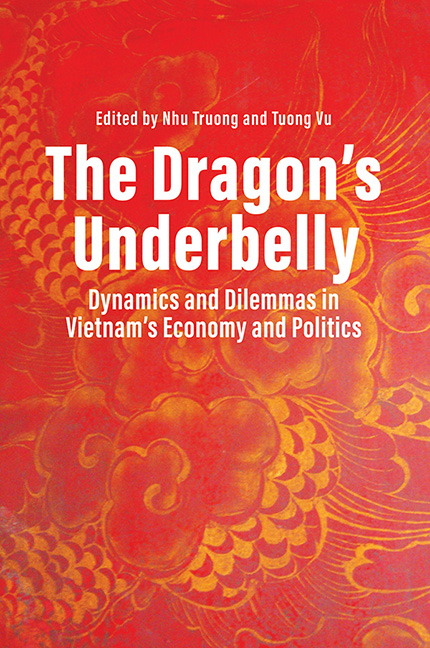Chapter 8 - Mediatized Infrapolitics and Government Accountability in Vietnam
Published online by Cambridge University Press: 09 January 2024
Summary
In 2017, the Vietnamese government began drafting eighty-five articles of a regulatory bill to open three special economic zones (SEZs) in Phu Quoc, Van Don and Bac Van Phong that offered foreign investors fewer regulations and greater fiscal incentives. The SEZ project first appeared in Quang Ninh province’s proposal for the establishment of Van Don in 2014 after Pham Minh Chinh’s meeting in 2013 with Chinese SEZ researchers from the China Center for Special Economic Zone Research (CCSEZR) of Shenzhen University. The initiative was then expanded into Bac Van Phong’s and Phu Quoc’s economic zones of Khanh Hoa and Kien Giang provinces, respectively, at the “International Science EEZ development – Experience and Opportunities” conference, which was co-organized by the Quang Ninh government and CCSEZR on 20 March 2014. The seminar brought together more than four hundred provincial government and private industry leaders, policy experts and academic professors to discuss “the mechanisms and specific policies for the special economic zones” (Tuan Anh 2015).
In October 2017, the SEZ draft bill was proposed and submitted for revision at the fourth session of the 14th National Assembly (NA), and then re-submitted at the fifth session. On 23 May 2018, Nguyen Khac Dinh, chairman of the 14th NA’s legal committee, announced that the majority of NA delegates agreed on the necessity to open public discussions on the bill’s regulatory scope and potential benefits of SEZs for the Vietnamese economy (Lawsoft 2018). According to the Politburo’s Conclusion No. 21, the reasons for opening these economic zones include “taking advantage of the regional potential; attracting strong investment capital, advanced technology, new management methods; generating more resources and motivations; and helping accelerate the process of economic development and restructuring of provinces, regions and the country as a whole” (Le Kien 2017). The draft law contains a controversial provision permitting the foreign lease of land in SEZs for up to ninety-nine years, and this sparked numerous waves of demonstrations and riots between June and September of 2018. At the sixth session, the NA conclusively approved the withdrawal of the SEZ bill. Out of 483 delegates, 423 of them voted in favour of the postponement, only 8 voted against it, and 55 abstained.
- Type
- Chapter
- Information
- The Dragon's UnderbellyDynamics and Dilemmas in Vietnam's Economy and Politics, pp. 234 - 261Publisher: ISEAS–Yusof Ishak InstitutePrint publication year: 2022

